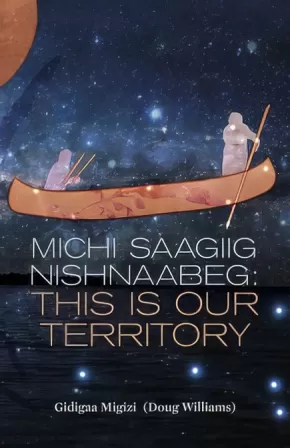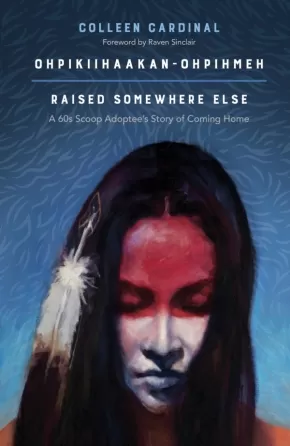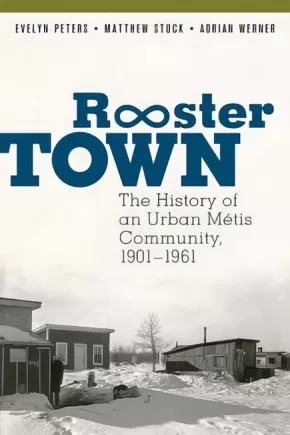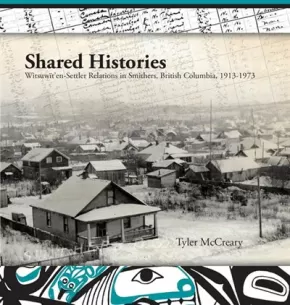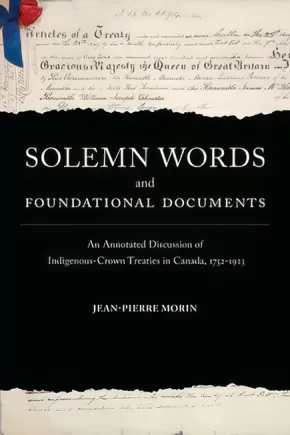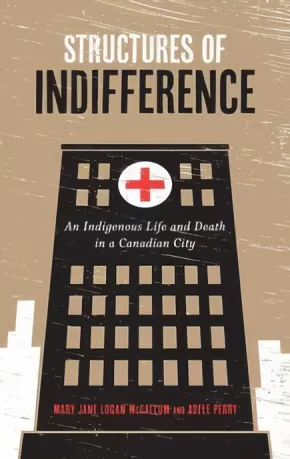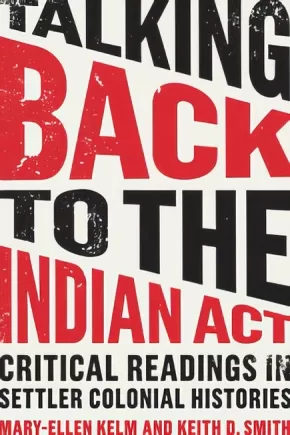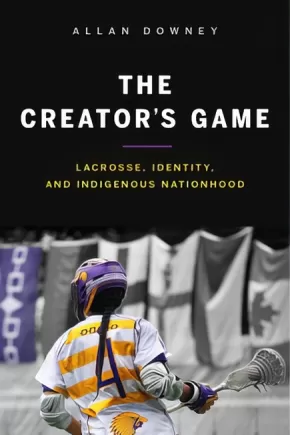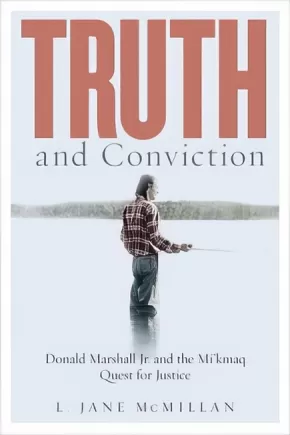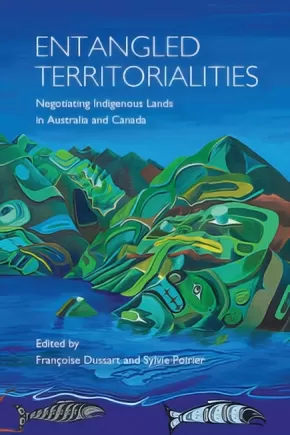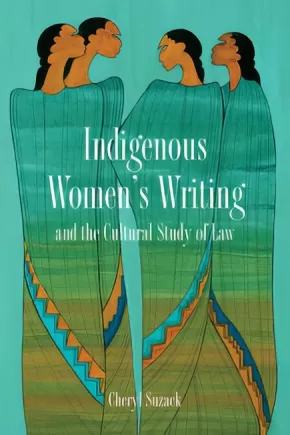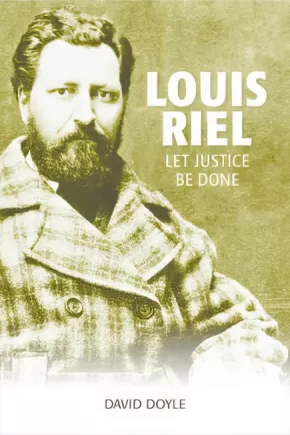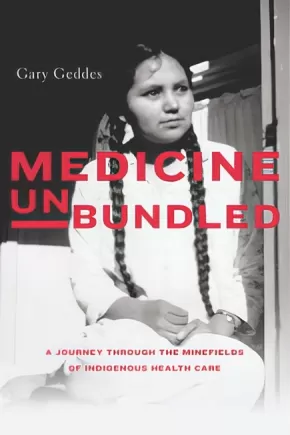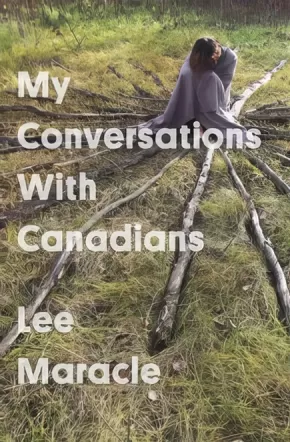Indigenous History
Synopsis:
In this deeply engaging oral history, Doug Williams, Anishinaabe elder, teacher and mentor to Leanne Betasamosake Simpson, recounts the history of the Michi Saagiig Nisnaabeg, tracing through personal and historical events, and presenting what manifests as a crucial historical document that confronts entrenched institutional narratives of the history of the region. Edited collaboratively with Simpson, the book uniquely retells pivotal historical events that have been conventionally unchallenged in dominant historical narratives, while presenting a fascinating personal perspective in the singular voice of Williams, whose rare body of knowledge spans back to the 1700s. With this wealth of knowledge, wit and storytelling prowess, Williams recounts key moments of his personal history, connecting them to the larger history of the Anishinaabeg and other Indigenous communities.
Reviews
"This book gives us an alternative perspective on historical record that is both personal and collective. Doug Williams reminds us of the generations of Indigenous knowledge keepers and of a history that stretches back prior to European contact-including the disruption of contact. This book is his gift to the Michi Saagiig and to all Anishinaabek. It is also a gift to Canadians who want to help decolonize this country. - Armand Garnet Ruffo
"Storytelling is not just a gift. It's not just an art. It's also a responsibility: the weaving together of history, philosophy, culture and humour frequently highlighting a culture's perspective on the world. Doug Williams has been doing this as long as I can remember. He lives the culture, not just talks about it. The people and places he talks about in Michi Saagiig Nishnaabeg are more a part of our history then all the things going on in Ottawa." - Drew Hayden Taylor
Educator Information
Recommended in the Canadian Indigenous Books for Schools 2019-2020 resource list as being useful for grades 9 to 12 for Creative Writing, English Language Arts, Media Studies, and Social Studies.
Additional Information
168 pages | 5.50" x 8.50"
Synopsis:
During the 60s Scoop, over 20,000 Indigenous children in Canada were removed from their biological families, lands and culture and trafficked across provinces, borders and overseas to be raised in non-Indigenous households.
Ohpikiihaakan-ohpihmeh — Raised Somewhere Else delves into the personal and provocative narrative of Colleen Cardinal’s journey growing up in a non- Indigenous household as a 60s Scoop adoptee. Cardinal speaks frankly and intimately about instances of violence and abuse throughout her life, but this book is not a story of tragedy. It is a story of empowerment, reclamation and, ultimately, personal reconciliation. It is a form of Indigenous resistance through truth-telling, a story that informs the narrative on missing and murdered Indigenous women, colonial violence, racism and the Indigenous child welfare system.
Reviews
“With Canadians slowly awakening to the reality of the 60s Scoop and its ongoing repercussions, Cardinal’s inspiring work here is essential reading and will be an integral resource for generations to come.” — Waubgeshig Rice, author of Legacy
“Offers a window through which readers can see why cultural suppression is such a dark chapter in Canada’s history.” — Winnipeg Free Press
“I highly recommend reading this story for anyone interested in learning more about the Sixties Scoop and understanding what’s really happening under the stereotypes put on many Indigenous by those who do not truly understand.” — All Booked
Educator Information
The Canadian Indigenous Books for Schools list recommends this resource for Grades 10-12 for English Language Arts.
Additional Information
214 pages | 6.00" x 9.00" | Foreward by Raven Sinclair
Synopsis:
Melonville. Smokey Hollow. Bannock Town. Fort Tuyau. Little Chicago. Mud Flats. Pumpville. Tintown. La Coulee. These were some of the names given to Métis communities at the edges of urban areas in Manitoba. Rooster Town, which was on the outskirts of southwest Winnipeg, endured from 1901 to 1961.
Those years in Winnipeg were characterized by the twin pressures of depression and inflation, chronic housing shortages, and a spotty social support network. At the city’s edge, Rooster Town grew without city services as rural Métis arrived to participate in the urban economy and build their own houses while keeping Métis culture and community as a central part of their lives.
In other growing settler cities, the Indigenous experience was largely characterized by removal and confinement. But the continuing presence of Métis living and working in the city, and the establishment of Rooster Town itself, made the Winnipeg experience unique.
Rooster Town documents the story of a community rooted in kinship, culture, and historical circumstance, whose residents existed unofficially in the cracks of municipal bureaucracy, while navigating the legacy of settler colonialism and the demands of modernity and urbanization.
"Rooster Town challenges the lingering mainstream belief that Indigenous people and their culture are incompatible with urban life and opens the door to a broader conversation about the insidious nature of racial stereotypes ubiquitous among the broader Canadian polity. — Brenda Macdougall
"Places like Rooster Town are known and talked about within the contemporary Métis world-everybody knows somebody whose parents or grandparents came from these types of invisible and often marginalized communities-but there has been no acknowledgment of their existence within Canadian historical, geographic, sociological, or political scholarship." — Brenda Macdougall
"Very little is written about Indigenous urban histories. They are typically hidden, or erased, from the histories of Prairie cities, and Canadian cities generally. Rooster Town is an authoritative correction to that colonial erasure in the written record." — Ryan Walker
248 pages | 6.00" x 9.00" | 33 b&w tables, 14 maps
Ch.1—Settler Colonialism and the Dispossession of the Manitoba Métis
Ch.2—The Establishment and Consolidation of Rooster Town, 1901-1911
Ch.3—Devising New Economic and Housing Strategies: Rooster Town during the First World War and After, 1916-1926
Ch.4—Persistence and Community: Rooster Town During and After the Great Depression, 1931-1946
Ch.5—Stereotyping, Dissolution, and Dispersal: Rooster Town, 1951-1961
Conclusion
Synopsis:
Using extensive first-hand interviews with both Witsuwit'en and settler elders, Shared Histories describes what happened in the 50 years after the Grand Trunk Pacific Railway established Smithers in the middle of Witsuwit'en territory in northwest British Columbia. By examining these relationships in the context of the history of colonization throughout the province, the author has written an open and honest portrayal of the ways in which the Witsuwit'en were marginalized, but still managed to create and maintain a place for themselves in a community that didn't want them.
Written with extensive consultation with members of the Witsuwit'en community and some of the town's earliest settler families, Shared Histories brings to life the often unwritten history of the ways in which these communities both clashed and joined forces. Its careful use of academic sources and the lived experience of participants make it the kind of history we all need to read.
This book will appeal to history buffs, educators, and academics and to those interested in First Nations and British Columbia history, truth, and reconciliation projects.
Awards
- Winner of the 2019 Lieutenant Governor's Medal for Historical Writing
Additional Information
200 pages | 9.50" x 9.00"
Synopsis:
In Solemn Words and Foundational Documents, Jean-Pierre Morin unpacks the complicated history of Indigenous treaties in Canada. By including the full text of eight significant treaties from across the country—each accompanied by a cast of characters, related sources, discussion questions, and an essay by the author—he teaches readers how to analyze and understand treaties as living documents.
The book begins by examining treaties concluded during the height of colonial competition, when France and Britain each sought to solidify their alliances with Indigenous peoples. It then goes on to tell the stories of treaty negotiations from across the country: the miscommunication of ideas and words from Crown representatives to treaty text; the varying ranges of rights and promises; treaty negotiations for which we have a rich oral history but limited written records; multiple phases of post-Confederation treaty-making; and the unique case of competing treaties with radically different interpretations.
Educator Information
TABLE OF CONTENTS
Timeline
Introduction: Reading a Treaty and Overview of Treaties Addressed by Chapter
1. 1752 Peace and Friendship Treaty
2. 1760 Huron-British Treaty
3. 1805 Treaty 13 (Toronto Purchase)
4. 1850 Robinson-Huron Treaty
5. 1852 Saanich Treaty
6. 1871 Treaty 1
7. 1899 Treaty 8
8. 1923 Williams Treaty
Appendix 1: Cast of Characters
Appendix 2: Glossary of Terms
Reviews
"Solemn Words and Foundational Documents heeds the Truth and Reconciliation Commission’s call for a better understanding of treaties in what is now Canada. Using a case-study approach, Morin provides students with important and accessible information about the treaties themselves, their continued significance, and the relationship between oral and written historical sources. Aimed at senior undergraduate students, the discussion questions, format, and perspectives included in the text make for a valuable pedagogical tool." - Lianne C. Leddy, Wilfrid Laurier University
"In order for reconciliation to occur, Canadians need to better understand how we came to live on Indigenous land, and Morin’s important new book helps to do just that. Historical documents related to treaty history are often scattered across archives and hard to access. This book brings together the treaties themselves, along with related documents and a sharp analysis. The result is a valuable book that will be read by students, scholars, and the general public who are increasingly coming to realize that still today, we are living in treaty relationships with First Nations." - Alison Norman, Trent University
Additional Information
280 pages | 6.00" x 9.00"
Synopsis:
The tragic consequences of systemic racism.
Structures of Indifference examines an Indigenous life and death in a Canadian city and what it reveals about the ongoing history of colonialism. At the heart of this story is a thirty-four-hour period in September 2008. During that day and a half Brian Sinclair, a middle-aged, non-Status Anishinaabeg resident of Manitoba’s capital city, arrived in the emergency room of the Health Sciences Centre, Winnipeg’s major downtown hospital, was left untreated and unattended to, and ultimately died from an easily treatable infection. His death reflects a particular structure of indifference born of and maintained by colonialism.
McCallum and Perry present the ways in which Sinclair, once erased and ignored, came to represent diffuse, yet singular and largely dehumanized ideas about Indigenous people, modernity, and decline in cities. This story tells us about ordinary indigeneity in the city of Winnipeg through Sinclair’s experience and restores the complex humanity denied him in his interactions with Canadian health and legal systems, both before and after his death.
Structures of Indifference completes the story left untold by the inquiry into Sinclair’s death, the 2014 report of which omitted any consideration of underlying factors, including racism and systemic discrimination.
Contents
Introduction: Thirty-Four Hours
Ch. 1: The City
Ch. 2: The Hospital
Ch. 3: Brian Sinclair
Conclusion
Reviews
“You can’t really sugarcoat the colonial genealogy that killed Brian Sinclair. Structures of Indifference is a necessary book. It offers a short, direct framing of the death of Brian Sinclair as a clear instance of racism, a racism that is the basis of Canadian settler colonialism.” – Sherene H. Razack, UCLA, author of Dying from Improvement: Inquests and Inquiries into Indigenous Deaths in Custody
Additional Information
192 pages | 4.25" x 7.12"
Synopsis:
Talking Back to the Indian Act is a comprehensive "how-to" guide for engaging with primary source documents. The intent of the book is to encourage readers to develop the skills necessary to converse with primary sources in more refined and profound ways. As a piece of legislation that is central to Canada’s relationship with Indigenous peoples and communities, and one that has undergone many amendments, the Indian Act is uniquely positioned to act as a vehicle for this kind of focused reading.
Through an analysis of thirty-five sources pertaining to the Indian Act—addressing governance, gender, enfranchisement, and land—the authors provide readers with a much better understanding of this pivotal piece of legislation, as well as insight into the dynamics involved in its creation and maintenance.
Educator Information
Recommended in the Canadian Indigenous Books for Schools 2019-2020 resource list for grades 11 and 12 for English Language Arts, Law, and Social Studies.
Additional Information
248 pages | 6.00" x 9.00"
Synopsis:
Lacrosse has been a central element of Indigenous cultures for centuries, but once non-Indigenous players entered the sport, it became a site of appropriation – then reclamation – of Indigenous identities. The Creator’s Game focuses on the history of lacrosse in Indigenous communities from the 1860s to the 1990s, exploring Indigenous-non-Indigenous relations and Indigenous identity formation. While the game was being appropriated in the process of constructing a new identity for the nation-state of Canada, it was also being used by Indigenous peoples to resist residential school experiences, initiate pan-Indigenous political mobilization, and articulate Indigenous sovereignty. This engaging and innovative book provides a unique view of Indigenous self-determination and nationhood in the face of settler-colonialism.
Additional Information
364 pages | 6.00" x 9.00" | 56 photos
Synopsis:
The name “Donald Marshall Jr.” is synonymous with “wrongful conviction” and the fight for Indigenous rights in Canada. In Truth and Conviction, Jane McMillan – Marshall’s former partner, an acclaimed anthropologist, and an original defendant in the Supreme Court’s Marshall decision on Indigenous fishing rights – tells the story of how Marshall’s fight against injustice permeated Canadian legal consciousness and revitalized Indigenous law.
Marshall was destined to assume the role of hereditary chief of Mi’kmaq nation when, in 1971, at the age of seventeen, he was wrongly convicted of murder. He spent more than eleven years in jail before a royal commission exonerated him and exposed the entrenched racism underlying the terrible miscarriage of justice. Four years later, in 1993, he was charged with fishing eels without a licence. With the backing of Mi’kmaq chiefs and the Union of Nova Scotia Indians, he took the case all the way to the Supreme Court to vindicate Indigenous treaty rights in the landmark Marshall decision.
Marshall was only fifty-five when he died in 2009. His legacy lives on as Mi’kmaq continue to assert their rights and build justice programs grounded in customary laws and practices, key steps in the path to self-determination and reconciliation.
This book will appeal to anyone interested in the Donald Marshall story, Indigenous peoples encounters with the law, and social justice issues.
Reviews
"Jane McMillian has written an admirable, engaging, and formidable book about an Indigenous man’s quest for justice against the systemic injustices of Canada." -
Additional Information
288 pages | 6.00" x 9.00" | 10 black and white photographs
Synopsis:
Entangled Territorialities offers vivid ethnographic examples of how Indigenous lands in Australia and Canada are tangled with governments, industries, and mainstream society. Most of the entangled lands to which Indigenous peoples are connected have been physically transformed and their ecological balance destroyed. Each chapter in this volume refers to specific circumstances in which Indigenous peoples have become intertwined with non-Aboriginal institutions and projects including the construction of hydroelectric dams and open mining pits. Long after the agents of resource extraction have abandoned these lands to their fate, Indigenous peoples will continue to claim ancestral ties and responsibilities that cannot be understood by agents of capitalism. The editors and contributors to this volume develop an anthropology of entanglement to further examine the larger debates about the vexed relationships between settlers and indigenous peoples over the meaning, knowledge, and management of traditionally-owned lands.
Synopsis:
In Indigenous Women’s Writing and the Cultural Study of Law, Cheryl Suzack explores Indigenous women’s writing in the post-civil rights period through close-reading analysis of major texts by Leslie Marmon Silko, Beatrice Culleton Mosionier, Louise Erdrich, and Winona LaDuke.
Working within a transnational framework that compares multiple tribal national contexts and U.S.-Canadian settler colonialism, Suzack sheds light on how these Indigenous writers use storytelling to engage in social justice activism by contesting discriminatory tribal membership codes, critiquing the dispossession of Indigenous women from their children, challenging dehumanizing blood quantum codes, and protesting colonial forms of land dispossession. Each chapter in this volume aligns a court case with a literary text to show how literature contributes to self-determination struggles. Situated at the intersections of critical race, Indigenous feminist, and social justice theories, Indigenous Women’s Writing and the Cultural Study of Law crafts an Indigenous-feminist literary model in order to demonstrate how Indigenous women respond to the narrow vision of law by recuperating other relationships–to themselves, the land, the community, and the settler-nation.
Additional Information
208 pages | 6.02" x 8.95"
Synopsis:
Louis Riel, prophet of the new world and founder of the Canadian province of Manitoba, has challenged Canadian politics, history and religion since the early years of Confederation. In Canada's most important and controversial state trial, Riel was found guilty of "high treason," sentenced to hang and executed on November 16, 1885. With 2017 being Canada's sesquicentennial of the initial Confederation of four British colonies, and with the question of reconciliation on the minds of many, the celebrations must recognize that the brutal execution of Louis Riel remains Canada's "great divide." Was the 1885 execution of Riel the hanging of a traitor? Or the legal murder of a patriot and statesman? Tried in a territorial court, Riel called out for justice, for an "inquiry into his career." To date, no such inquiry has been called. The spiritual and political father of the Métis nation and Western Canada remains branded a traitor to Canada.
In this imaginative re-enactment of his trial, Riel is finally given the opportunity to respond to his conviction for treason, offering his side of the story at Batoche and Red River.
Reviews
“In this era of reconciliation, Louis Riel: Let Justice Be Done is a tour de force. Exposing the combined pillars of racism and colonialism, Doyle assists in the decolonization of Canadian history during her sesquicentennial commemorations and celebrations.” — Venerable Dr. John A. (Ian) MacKenzie
“David Doyle’s advocacy, both in his writings and presentations, appropriates nothing from the Métis or their culture, rather it supplements it both for them and for all Canadians.” — George & Terry Goulet, authors of The Trial of Louis Riel
Additional Information
200 pages | 9.00" x 6.00" | 16 b&w photos
This book is creative nonfiction, a genre of writing that presents factually accurate narratives using literary style and technique (creativity).
Synopsis:
A shocking exposé of the dark history and legacy of segregated Indigenous health care in Canada.
After the publication of his critically acclaimed 2011 book Drink the Bitter Root: A Writer’s Search for Justice and Healing in Africa, author Gary Geddes turned the investigative lens on his own country, embarking on a long and difficult journey across Canada to interview Indigenous elders willing to share their experiences of segregated health care, including their treatment in the "Indian hospitals" that existed from coast to coast for over half a century.
The memories recounted by these survivors—from gratuitous drug and surgical experiments to electroshock treatments intended to destroy the memory of sexual abuse—are truly harrowing, and will surely shatter any lingering illusions about the virtues or good intentions of our colonial past. Yet, this is more than just the painful history of a once-so-called vanishing people (a people who have resisted vanishing despite the best efforts of those in charge); it is a testament to survival, perseverance, and the power of memory to keep history alive and promote the idea of a more open and just future.
Released to coincide with the Year of Reconciliation (2017), Medicine Unbundled is an important and timely contribution to our national narrative.
Synopsis:
Métis and the Medicine Line is a sprawling, ambitious look at how national borders and notions of race were created and manipulated to unlock access to indigenous lands. It is also an intimate story of individuals and families, brought vividly to life by history writing at its best.
It begins with the emergence of the Plains Métis and ends with the fracturing of their communities as the Canada-U.S. border was enforced. It also explores the borderland world of the Northern Plains, where an astonishing diversity of people met and mingled: Blackfoot, Cree, Gros Ventre, Lakota, Dakota, Nez Perce, Assiniboine, Anishinaabes, Métis, Europeans, Canadians, Americans, soldiers, police, settlers, farmers, hunters, traders, bureaucrats.
In examining the battles that emerged over who belonged on what side of the border, Hogue disputes Canada's peaceful settlement story of the Prairie West and challenges familiar bromides about the "world's longest undefended border."
Synopsis:
Hearkening back to her first book tour at the age of 26 (for the autobiographical novel Bobbi Lee: Indian Rebel), and touching down upon a multitude of experiences she's had as a Canadian, a First Nations leader, a woman and mother and grandmother over the course of her life, Lee Maracle's My Conversations with Canadians presents a tour de force exploration into the writer's own history and a re-imagining of the future of our nation.
In this latest addition to BookThug's Essays Series (edited by poet Julie Joosten), Maracle's writing works to engage readers in thinking about the threads that keep Canadians tied together as a nation--and also, at times, threaten to pull us apart--so that the sense of sovereignty and nationhood that she feels may be understood and even embraced by Canadians.

